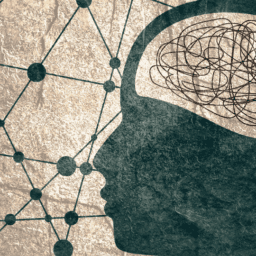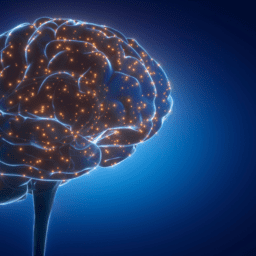From memory problems to problem-solving challenges, cognitive changes are something that approximately 50% of people with Parkinson’s will experience. In this post, we'll take a close look at Parkinson's impacts on cognition and five key strategies to manage cognitive changes you may encounter.
Cognition is a general term used to describe the mental ability to process information and apply knowledge. Not only can Parkinson’s slow down movement (bradykinesia), it can also slow down your ability to think and process information (bradyphrenia). In mild cognitive impairment, which is estimated to occur in 20-50% of people with Parkinson’s, a person may still be able to work and complete day-to-day tasks, just at a slower pace. Many people with mild cognitive impairment can think and analyze, communicate, remember information, and function normally.
While changes in cognition or thinking abilities can happen at any time, they typically tend to come as we age. For some people living with Parkinson's, these changes will never progress beyond mild cognitive impairment. Others experience a prolonged cognitive decline over time. One positive note is that the progression of cognitive challenges that can come for some people in the later stages of Parkinson's, such as dementia, can be influenced when caught early and managed proactively.
The Primary Areas of Cognition Affected
Because Parkinson's alters many regions of the brain and the dopamine system, it can affect executive function, language, and memory.
 Executive Function (Problem-Solving)
Executive Function (Problem-Solving)
Think of executive function as the CEO of an organization. The CEO’s role is to direct the tasks of a group. This job involves making decisions, solving problems, initiating change, and keeping the organization on task to meet goals. Executive function helps us do similar tasks in our daily lives. A change in the brain's executive function is one of the most common cognitive changes in Parkinson's and can make problem-solving and decision-making very difficult.
Language (Communication)
When under pressure, you may feel frustrated when you try to speak, follow, and understand conversations.
Speech
The most common language problem in Parkinson's is called the "tip-of-the-tongue" phenomenon. You may know what you want to say, but you have difficulty finding the right words to say it, such as naming an object. A person once remarked that the worst thing for him about Parkinson's is that he can still think of funny things to say, but he can't say them at the right time. In addition to this phenomenon, you may begin to lose volume and speak quietly. It can be increasingly frustrating when you want to express a feeling or thought, and people can't hear you and therefore don't respond or communicate with you.
Comprehension
You may have difficulty following explanations with too many details. Everyday conversations may seem overloaded with information. Your thoughts might get stuck on a single topic, and you may have trouble shifting your thoughts to another.
Memory
You may struggle to remember things and to keep your train of thought, or you may zone out in the middle of an activity. This challenge may change from minute to minute or week to week. You may feel clear as a bell one minute, then fuzzy the next. One man with Parkinson's told us that he would put on one shoe, then zone out, and need to be reminded by his care partner to put on the other shoe. You may also have difficulty with everyday tasks with many steps, such as making coffee or balancing a checkbook.
5 Strategies to Manage Changes in Cognition
#1 - Remember that life is a journey, not a destination.
Give yourself more time for everyday activities and tasks. You will better manage cognitive changes and challenges if you avoid rushing to complete jobs quickly. Stay present and focus on what is happening in the moment.
#2 - Initiate the conversation about cognitive changes early.
Your physicians may be so focused on your motor symptoms that they put cognitive changes on the back burner. Therefore, it might be up to you to start this conversation early on in your diagnosis. If you or your care partner and family members notice changes in your cognition, discuss them with your physician. Physicians can perform objective tests to measure your thinking and memory to identify when cognitive impairment should be addressed. And, because changes in cognition can have other causes, it is essential to tell your physician right away if you notice changes in your ability to pay attention, make decisions, form thoughts quickly, or remember details about events. Other medical conditions, such as a vitamin B12 deficiency, thyroid disease, urinary tract infection, pneumonia, stroke, and side effects of medications, can also cause confusion, hallucinations, and sleepiness. It's critical to rule out those causes and/or treat those first rather than simply assuming that the changes in cognition are caused by Parkinson's.
#3 - Consider visiting a neuropsychologist.
Although it can be expensive to see a neuropsychologist (a healthcare professional specializing in understanding the relationship between the brain and behavior), it can be beneficial. A neuropsychologist can give you a cognitive evaluation and offer recommendations for maintaining or improving your thinking skills and emotional functioning.
#4 - Engage in mental exercises.
In the same way physical activity improves movement and strength, brain exercises can help improve your cognitive functioning. Many games and puzzles are designed to boost the brain's fitness, from traditional crossword puzzles to interactive brain teasers modeled after video games. Creativity can also enhance cognition, and many people with Parkinson's discover a newfound enjoyment in various art and music projects.
 Trying new things creates new pathways in the brain and helps keep your brain healthier and active. Embrace and seek out new and novel adventures and activities to continually challenge your brain. Find new ways to exercise, different types of brain teasers, or even a new path for your daily walk. You're also keeping your brain engaged and strong when you:
Trying new things creates new pathways in the brain and helps keep your brain healthier and active. Embrace and seek out new and novel adventures and activities to continually challenge your brain. Find new ways to exercise, different types of brain teasers, or even a new path for your daily walk. You're also keeping your brain engaged and strong when you:
- Take a class that challenges you
- Study a new language
- Try out improv (a favorite among many people in our community!)
- Run, walk, or ride a new route every week
- Get your coffee at different locations
- Rearrange the apps on your phone
- Reorganize your kitchen cabinets
- Learn the locations all of the countries of the world
Do something you've never done at least once a week. It doesn't take much to shake up the circuits in your brain, but the effects can be long-lasting and powerfully beneficial.
#5 - Build aerobic exercise into your daily life.
Exercise has been proven, again and again, to improve motor symptoms of Parkinson's and cognition. Talk to your care team about ideal exercise routines for you, find those you enjoy, and regularly move your body.
Take action today
Remember that thinking and processing can be improved in many enjoyable ways. To manage changes in cognition, visit your community center, senior center, Parkinson's support group, or local community college to see what programs are available to you and your family. Many libraries, universities, school districts, and online outlets also offer adult learning programs covering a wide range of interests. Ask your healthcare provider to refer you to an occupational, recreational, art, music, dance, or physical therapist for more focused cognitive wellness programs. Commit to doing activities that challenge your brain. Choose activities you enjoy, pace yourself, and have fun.


















